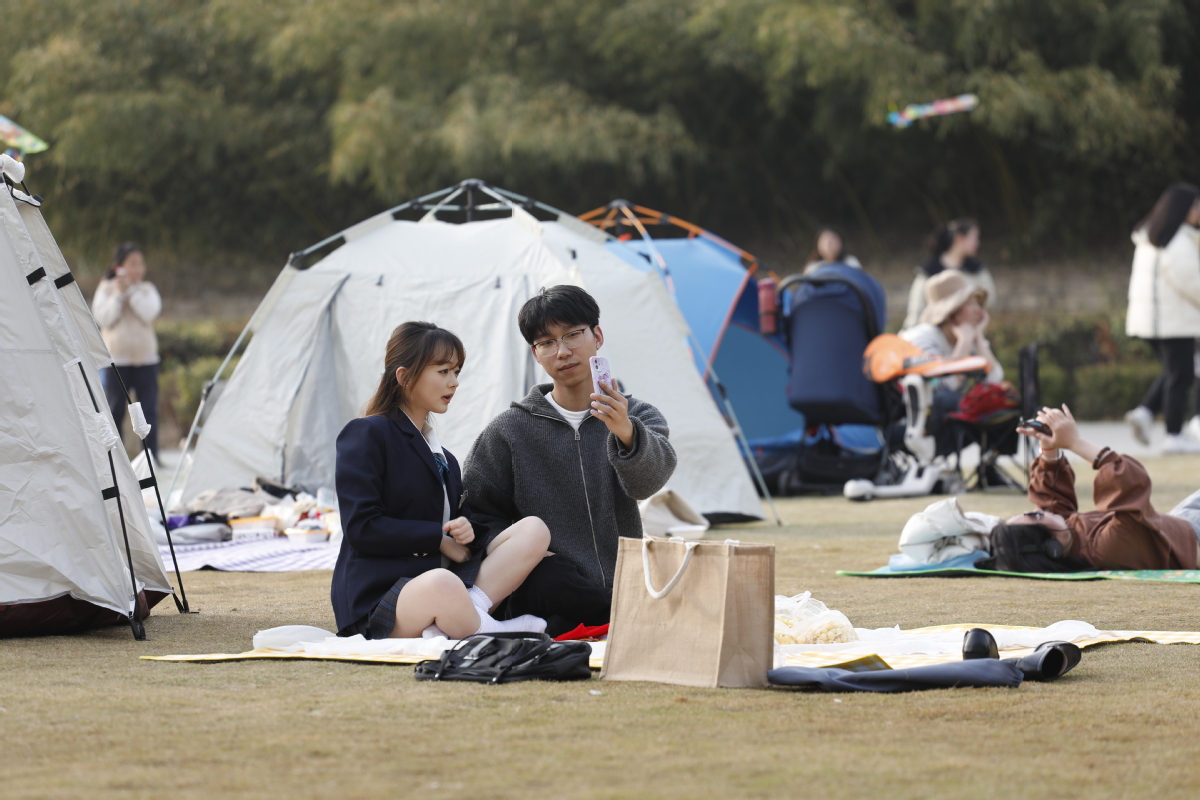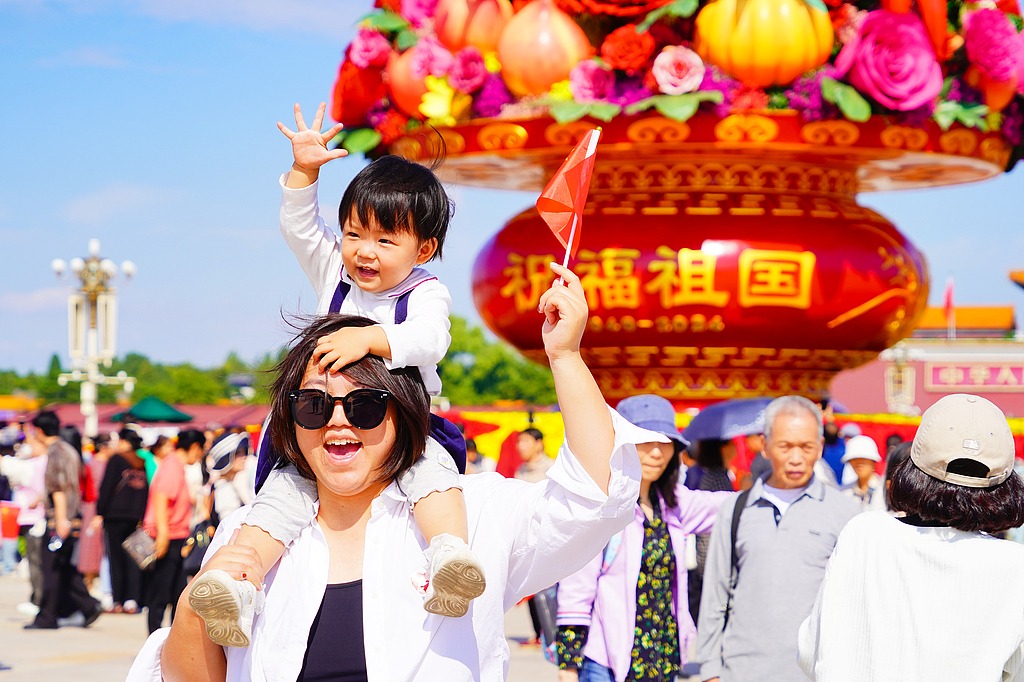Sales boom for outdoor sports gear
Those 18-29 years old with unique lifestyles form main consumer segment


Outdoor sports equipment related to camping, running, cycling and hiking has become popular among Chinese consumers with the arrival of warmer weather, according to Chinese tech heavyweight Alibaba Group's online marketplace Tmall.
Chinese residents are attaching greater importance to healthy lifestyles, and are willing to go outdoors, take in the fresh air and enjoy the beautiful springtime scenery, Tmall said.
Data from Tmall showed that sales of outdoor apparel and shoes have boomed since early spring, with the turnover of jackets surging more than 80 percent and running shoes jumping 123 percent year-on-year.
Sales of outdoor inflatable beds skyrocketed 50 percent year-on-year, while the transaction volume of camping pillows soared more than 100 percent compared with the same period last year, Tmall said.
Cycling equipment and accessories have found increasing favor among Chinese consumers, with sales rising nearly 70 percent year-on-year.
Young shoppers prefer bringing electronic devices when they head out for sightseeing. Since February, searches for headphones have increased more than 200 percent from the year-earlier period on Tmall, while foldable smartphones are increasingly gaining traction among people who chase fashion trends.
In addition, outdoor equipment related to diving, hiking and cycling have all witnessed high growth in sales.
People between the ages of 18 and 29 have become the main consumers of outdoor products in spring and summer, accounting for about 40 percent of total buyers, Tmall said.
Since the beginning of this year, the turnover of diving equipment and bicycle accessories, such as stopwatches and water bottle cages, on Tmall has increased 120 percent and 70 percent year-on-year, respectively. Sales of shoes for river source tracing have also risen by 75 percent on a yearly basis.
Zhan Junhao, founder of Fujian Huace Brand Positioning Consulting, said the popularity of outdoor equipment among consumers has demonstrated the transformation of Chinese people's lifestyles and upgrades in consumption demand.
Chinese shoppers have paid more attention to health and the quality of leisure, while paying increasing attention to the purchase of outdoor equipment, fueled by the rapid development of the Chinese economy, the rise in people's purchasing power and fast-growing and convenient e-commerce channels, he said.
"Young Chinese consumers, especially Generation Z, tend to pursue diversified and personalized shopping experiences, with a key focus on the quality of the products they buy, so the high-quality outdoor sports equipment can better meet their needs," said Zhang Zhouping, a senior analyst on business-to-business and cross-border activities at the Internet Economy Institute, a domestic consultancy.
Gen Z refers to those born between the mid-1990s and the early 2010s.
Zhang said outdoor equipment companies should seize the opportunities to make innovations, invest more on research and development, as well as improve the supply chain system and the quality of products, so as to cater to consumers' diverse needs.
China's consumption market has witnessed a recovery. Retail sales, a major indicator of the country's consumption strength, rose 5.5 percent year-on-year in the January-February period, data from the National Bureau of Statistics showed.
Online consumption remained a bright spot as online retail sales jumped 15.3 percent year-on-year, with online retail sales of physical goods rising 14.4 percent and accounting for 22.4 percent of the total retail sales.
The Bank of China Research Institute said in a report that consumption is expected to maintain growth momentum and continue to serve as the "ballast stone" in boosting the country's economic growth. Consumption will grow by about 6 percent in 2024, it estimated.
To further spur consumption, more stimulus policies are needed to stabilize and expand employment, improve household incomes, boost people's ability and willingness to spend, and encourage spending on big-ticket items, said Pan Helin, co-director of the Digital Economy and Financial Innovation Research Center at Zhejiang University's International Business School.




































